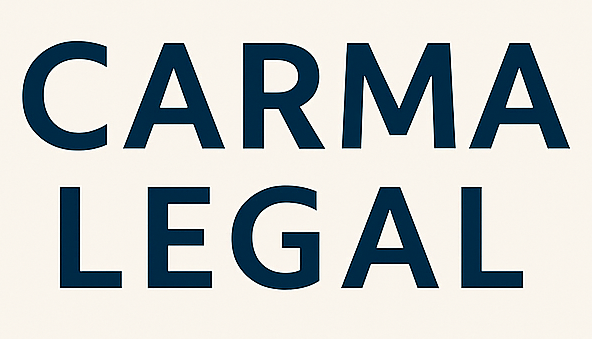If you’ve been injured in a crash involving a commercial truck, finding the right truck accident lawyer can make a critical difference in recovering the compensation you deserve. From medical bills and lost wages to property damage and pain and suffering, large truck collisions often involve complex liability rules and multiple parties. Acting quickly and choosing counsel with the right expertise will help you navigate insurance claims, meet filing deadlines, and build a strong case on your behalf.
In this guide, you’ll learn why timing matters, what to look for in an attorney, how to gather key evidence, allocate fault, and maximize your financial recovery. By following these steps, you can protect your rights and focus on your healing.
Understanding truck accident lawyers
Role and expertise
A lawyer who focuses on truck wrecks handles every legal and technical aspect of your claim. They will:
- Investigate the crash scene and review police reports
- Obtain and analyze electronic control module (ECM) data
- Consult accident reconstruction experts
- Identify all liable parties, from the driver to the manufacturer
- Negotiate with insurers and prepare demand letters
- Litigate in court if a fair settlement is not reached
You benefit from their familiarity with Federal Motor Carrier Safety Administration rules, state regulations, and the specialized evidence needed in 18-wheeler and tractor-trailer cases.
Difference from other attorneys
Not all personal injury lawyers have in-depth knowledge of trucking regulations or the technical skills to handle black-box data. A truck collision attorney:
- Understands Hours-of-Service violations and duty-of-care standards
- Knows how to hold carriers vicariously liable for driver negligence or improper maintenance [1]
- Has relationships with expert witnesses who specialize in commercial vehicle crashes
- Anticipates strategies insurers use to deny or lowball claims
In contrast, a general auto accident attorney may lack the resources or track record needed to tackle these complex cases.
Recognizing hiring urgency
Early investigation benefits
After a serious collision, evidence can vanish quickly. Hiring counsel within days helps you:
- Preserve perishable evidence like skid marks, tire debris, and roadway measurements
- Interview witnesses before memories fade
- Secure surveillance or traffic camera footage
- Prevent routine disposal of ECM records
Statute of limitations
Every state imposes a deadline for filing your lawsuit. Missing this window can bar your claim forever.
State examples
- South Carolina generally allows three years from the crash date to sue [2]
- Ohio gives you two years under Ohio Revised Code § 2305.10 [3]
Check your local statute of limitations and start your case as soon as possible.
Evaluate lawyer qualifications
Experience and track record
Look for a lawyer who:
- Has handled dozens of semi-truck or big rig collision cases
- Won significant verdicts or settlements in your region
- Publishes case results or client testimonials
Industry-specific skills
Choose counsel who:
- Regularly attends trucking law seminars and FMCSA updates
- Partners with accident reconstructionists and medical experts
- Understands complex liability, from cargo loader negligence to manufacturer defects
Resources and support staff
A dedicated firm should offer:
- In-house paralegals for swift document collection
- Access to investigators who specialize in commercial vehicle fleets
- A network of medical providers and vocational experts
When you compare credentials, you may also review our guide on finding the best truck accident attorney for deeper tips.
Compare fee structures
Contingency fee basics
Most truck accident lawyers work on contingency, meaning they only get paid if you win. Common terms include:
- 33 percent to 40 percent of your gross recovery
- No fees for initial consultation or case evaluation
Additional costs
Clarify whether you owe:
- Court filing fees
- Expert witness expenses
- Costs for obtaining records or depositions
A transparent fee agreement protects you from surprises and ensures alignment of interests.
Gather essential evidence
Crash scene data
Collect:
- Police and accident reports
- Photographs of vehicle damage, road conditions, and skid marks
- Traffic camera or nearby surveillance footage
Electronic control modules
Most commercial trucks have ECMs—sometimes called black boxes—that record speed, braking, and hours of service. Your attorney will subpoena this data to pinpoint driver behavior [4].
Witness statements
Secure contact information and recorded accounts from:
- Other drivers
- Passengers
- Bystanders or commercial dispatchers
Expert analysis
Engage specialists to reconstruct the collision, analyze maintenance records, or testify on industry standards for cargo loading and vehicle upkeep.
Navigating fault allocation
Comparative negligence
Many states apply comparative fault rules, reducing your recovery by your percentage of blame. For example, if you’re 20 percent at fault, a $100,000 verdict becomes $80,000. Some jurisdictions bar recovery entirely if you exceed a fault threshold, often 50 percent or 51 percent [5].
Multiple liable parties
A truck wreck can involve:
| Potential defendant | Basis for liability |
|---|---|
| Truck driver | Negligence, fatigue, speeding |
| Trucking company | Vicarious liability, failure to train, hiring |
| Maintenance provider | Negligent inspections or repairs |
| Cargo loader | Improper loading, shifting loads |
| Truck manufacturer | Defective brakes, tires, or design flaws |
Your attorney will pursue claims against each party to maximize compensation.
Manage insurance claims
Dealing with adjusters
Insurers may pressure you to give a recorded statement or sign releases. Your lawyer will handle communications and protect you from lowball tactics.
Crafting demand letters
A formal demand outlines your injuries, damages, and legal arguments. It sets the stage for negotiations by:
- Summarizing liability and at-fault conduct
- Detailing medical treatment and future care needs
- Requesting a specific settlement amount
Negotiation strategies
Your counsel uses:
- Comparative data from similar cases
- Expert reports on long-term rehabilitation costs
- Timeline pressures from evolving evidence
In cases involving large commercial vehicles, an experienced commercial vehicle accident attorney can be invaluable in handling insurer scrutiny.
Maximize compensation recovery
Compensation types
Understanding what you can recover ensures you don’t leave money on the table.
| Damage category | Examples |
|---|---|
| Economic damages | Medical bills, lost wages, property repairs |
| Non-economic damages | Pain and suffering, emotional distress |
| Punitive damages | Gross negligence or intentional wrongdoing |
Economic damages
- Past and future medical expenses
- Rehabilitation and therapy costs
- Income lost during recovery
- Diminished earning capacity assessed by vocational experts [6]
Non-economic damages
- Physical pain and mental anguish
- Loss of enjoyment of life
- Disfigurement or permanent disability
Punitive damages
Awarded when a defendant’s conduct is especially reckless or malicious. Caps vary by state.
Settlement versus lawsuit
Most claims resolve in settlement. Litigation becomes necessary if:
- Insurers refuse to negotiate in good faith
- Liability or damages are heavily contested
- Punitive damages or high-value claims are at stake
Your lawyer will recommend filing suit before your statute of limitations expires to maintain leverage.
Specialized cases
In catastrophic crashes or rollovers, you may need a focused 18 wheeler accident lawyer to address severe injuries and complex liability issues.
Take next steps
Initial consultation
Prepare for your first meeting by gathering:
- Medical records and bills
- Police and accident reports
- Photographs of the crash scene and vehicle damage
- Contact information for witnesses
Timeline overview
- Case evaluation and evidence preservation (first few days)
- Demand letter and settlement negotiations (1–3 months)
- Lawsuit filing if needed (before deadline)
- Discovery, depositions, and expert reports (3–9 months)
- Mediation, trial preparation, and potential trial (9–18 months)
Your attorney will guide you through each stage, keeping you informed and focused on your recovery.
By following this guide and choosing counsel with specialized truck accident experience, you’ll position yourself for the strongest possible outcome. Take action today to protect your rights and secure the compensation you need to rebuild your life.








